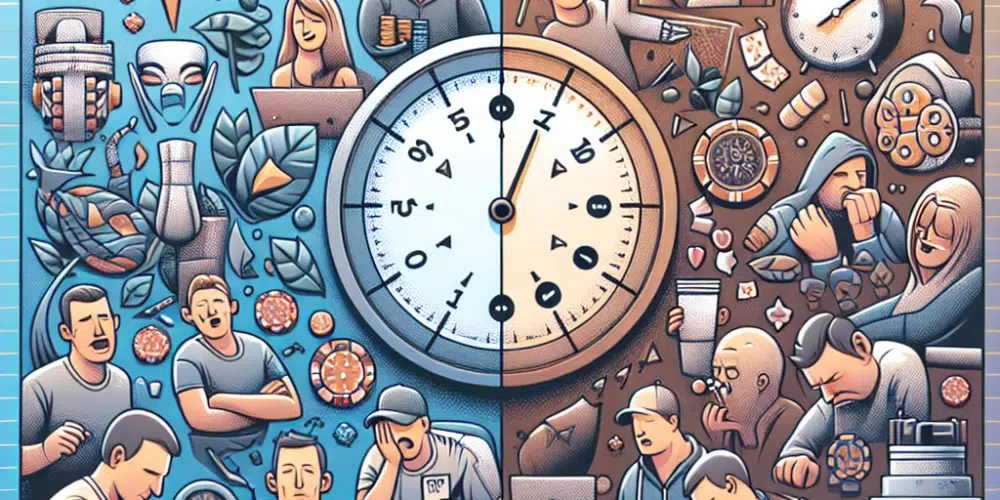Poker tournaments have long been a staple of the gaming community, attracting players from around the world to compete for prestigious titles and substantial winnings. Traditionally, these events have had starting times that often extend late into the night. Recently, a debate has emerged within the poker community: should poker tournaments start and finish earlier? This question, explored in depth during episode 925 of the PokerNews Podcast, has sparked varied opinions from players and organizers alike.
The core argument for starting poker tournaments earlier revolves around player well-being and efficient time management. Tournaments that begin in the evening typically run late into the night or even the early hours of the morning, which can be physically and mentally taxing for participants. Many players argue that earlier start times would allow for a more balanced schedule, promoting better performance and overall health. “There’s nothing worse than making a crucial decision at 3 a.m.,” remarked a seasoned professional, reflecting a common sentiment among players who feel that fatigue can negatively impact their gameplay.
Furthermore, earlier start times could make tournaments more accessible to a wider audience. With events concluding earlier in the evening, spectators who cannot stay up late due to work or family commitments could engage more fully in the experience. This change could potentially grow the audience base and enhance the vibrancy of live poker as a spectator sport. Organizers also contend that venues may appreciate the earlier conclusions, allowing them to transition to other activities or events more seamlessly, thereby increasing their revenue potential.
On the economic side, poker tournaments contribute significantly to the local economies where they are held. Players and spectators often travel from various regions, spending money on accommodations, dining, and entertainment. Adjusting tournament schedules could have both positive and negative impacts on these economies. For instance, earlier endings might lead to increased spending on evening leisure activities, as players and fans look for ways to unwind after the events. Conversely, later start times can promote prolonged engagement with venue services, potentially boosting income from hospitality sectors that thrive on late-night business.
In examining the industry context, the poker scene has evolved considerably over the years, with televised events and online streaming becoming integral parts of the experience. Shifting to earlier start times might affect broadcasting schedules, as prime viewing slots often coincide with late evening hours. Broadcasters and online platforms would need to adapt, possibly altering their programming strategies to accommodate an earlier audience. This adaptation, while challenging, could also open new opportunities for networks to explore different content offerings during traditionally quieter time slots.
Critics of earlier start times argue that the current schedules have become an integral part of the poker culture. For many players, the night-time ambiance adds to the allure and excitement of the game. The quieter hours can foster a unique focus and intensity that might be lost with a daytime setting. Additionally, many players juggle poker with other commitments and might find it difficult to arrive at earlier times, potentially reducing participation numbers.
Another perspective considers the dynamic pacing of poker tournaments. Some suggest that instead of merely altering start times, organizers could restructure the events to maintain player engagement and energy levels throughout. This could include implementing shorter breaks, optimizing blind levels, or even considering multi-day formats that allow for more rest between sessions.
The debate also touches on the psychological aspect of poker. As a game deeply rooted in strategy and mental acuity, maintaining peak cognitive performance is essential. An adjustment to earlier times might benefit those whose natural circadian rhythms align with daytime activity. However, for those accustomed to late-night play, the shift could disrupt their established strategies and routines.
In the end, whether or not poker tournaments should start and finish earlier remains a multifaceted issue. The decision involves balancing the needs and preferences of players, organizers, and the broader economic and cultural implications. As the poker community continues to discuss and experiment with these ideas, one thing is clear: the game of poker, much like the strategic plays within it, constantly evolves. As one enthusiast noted, “Poker is as much about adapting to the situation as it is about playing the cards you’re dealt.”
While the conversation is ongoing, any changes would require careful consideration and collaboration among all stakeholders to ensure that the essence of the game, along with its appeal to players and fans worldwide, remains intact. As the poker world weighs its options, the outcome could potentially set a precedent for other competitive gaming events, reflecting broader trends in how entertainment and leisure activities are structured in today’s fast-paced world.

Garry Sputnim is a seasoned journalist and storyteller with over a decade of experience in the trenches of global news. With a keen eye for uncovering stories that resonate, Alex has reported from over 30 countries, bringing light to untold narratives and the human faces behind the headlines. Specializing in investigative journalism, Garry has a knack for technology and social justice issues, weaving compelling narratives that bridge tech and humanity. Outside the newsroom, Garry is an avid rock climber and podcast host, exploring stories of resilience and innovation.
















